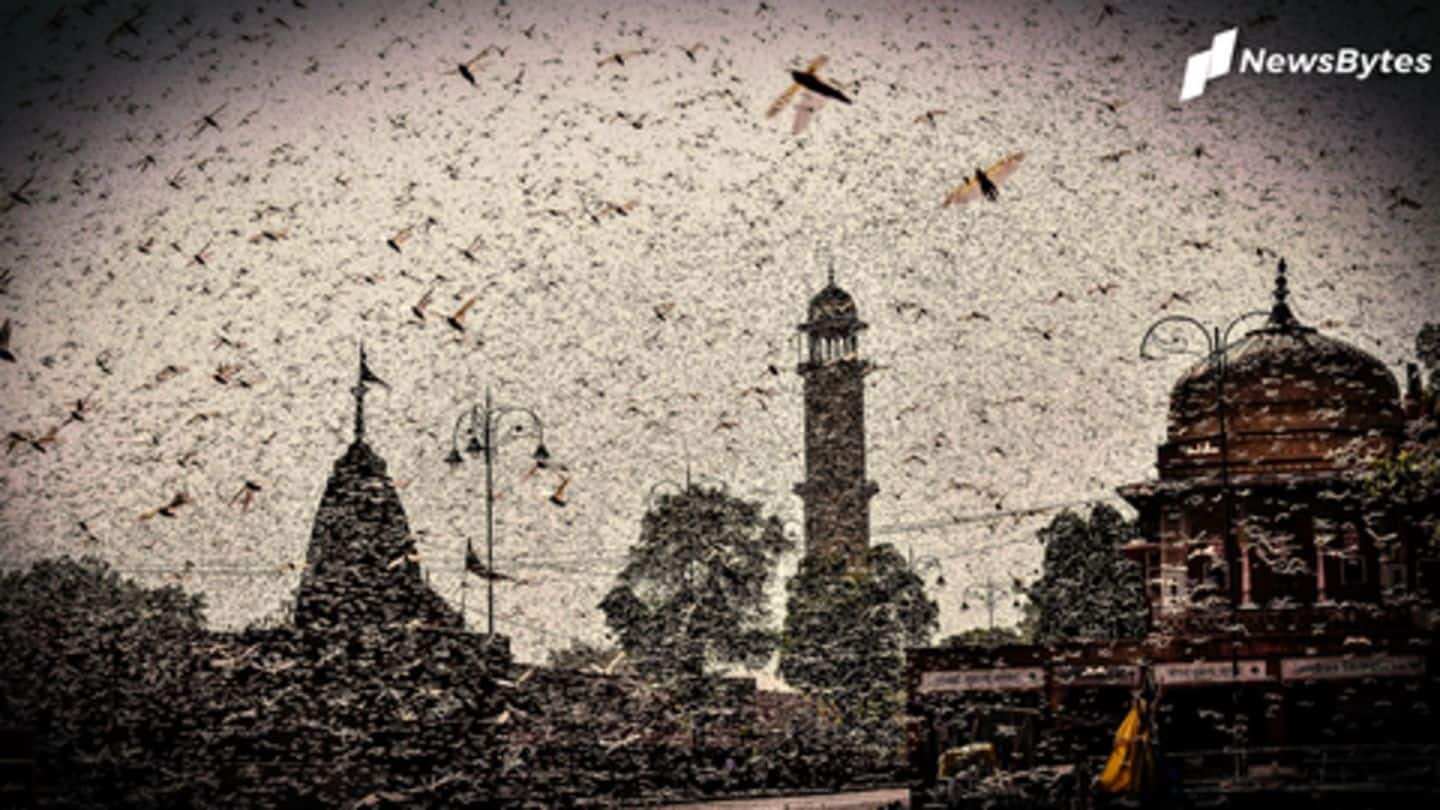
Locust invasion continues, drones being used, states remain alert
What's the story
With locusts blanketing a number of states, wiping off vegetation in a matter of hours, and entering urban areas too, the Central government on Wednesday said drones have been deployed to mitigate the effect. Punjab was put on high alert and farmers were asked to report any such attack to authorities. Maharashtra, Uttar Pradesh, Punjab, Rajasthan, Gujarat, Madhya Pradesh, and Haryana, were affected.
Context
Locusts came from Iran and Pakistan, traveled to several states
The locusts are flying in from Iran and Pakistan. While this phenomenon isn't new in drier months, the enormity of the attack has troubled everyone — from governments, already tackling the coronavirus pandemic, to farmers, whose months of work is at stake, and urban residents, who have never seen their terraces being taken over by insects before. India's food security is also under threat.
Threat
Each adult locust can eat as much as it weighs
According to the Food and Agriculture Organisation (FAO), an adult locust can eat as much as it weighs (2 grams) daily. A kilometer of the swarm contains somewhere between 4 and 8 crore locusts. It can eat food meant for 35,000 people. Earlier, attacks remained confined to Rajasthan and Gujarat but as crops have largely been harvested, these insects moved to other places.
Attack
It's the worst attack in 26 years: Official
An official of the Faridabad-based Locust Warning Organisation (LWO), said this attack is the worst in 26 years. The Union Agriculture Ministry said initiatives were taken to contain the menace in 21 districts of Rajasthan, 18 of Madhya Pradesh, two of Gujarat, and one district of Punjab. The problem has been contained in 47,308 hectare in the four states thus far.
Drones
Drones being used to spray insecticides
The ministry added that 60 spraying machines were being purchased from UK-based company Micron. Two other firms were picked to supply drones, which will spray insecticides on tall trees and other inaccessible areas. In fact, for the first time ever, Rajasthan's state agriculture department used drones to ward off locusts in Jaipur's Chomu tehsil. The operation started on Wednesday morning.
Capability
Drones give officials an edge in the fight against locusts
The drones used in Jaipur are capable of spraying 10 liter of chemicals while creating a sound that would disperse the insects. The spray tank exhausts after 10 minutes of flight. Agriculture department's Commissioner Om Prakash said the biggest advantage is that the drones can fly above the flying zone of locusts, allowing officials to carry out the operation while the insects travel.
Details
Locusts attacked Jhansi yesterday, high alert sounded in Punjab
After attacking Madhya Pradesh, the locusts went towards Uttar Pradesh's Jhansi on Wednesday, prompting authorities to remain on alert. In Punjab, infestation and control rooms were set up in each district, said an official. Experts at Chaudhary Charan Singh Haryana Agricultural University (CCSHAU) said farmers must keep a strict vigil and immediately inform authorities upon seeing such insects.
Problem
Meanwhile, immature locusts are active in a number of districts
Swarms of "immature locusts" are active in Rajasthan's Barmer, Jodhpur, Nagaur, Bikaner, Ganganagar, Hanumangarh, Sikar and Jaipur; and in seven districts of MP, namely Satna, Gwalior, Seedhi, Rajgarh, Baitul, Devas, and Agar Malwa. "Their mobility makes it difficult to control the swarm at one location and it takes 4-5 days of control at different locations to control a particular locust swarm," the ministry said.